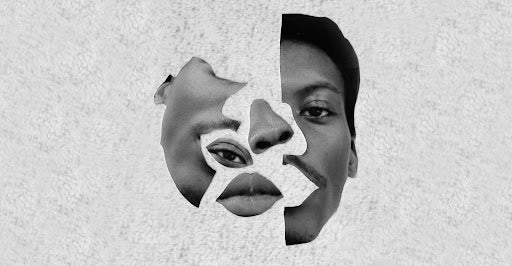Within the last year, I had to let go of a relationship that I depended on for the last 5 years of my life. For those 5 years, I had never been so sure about anything before. Amongst the loss, I questioned whether or not I was good or even capable of loving at all. This primary relationship was my first time truly exchanging the depth of my humanity with another being. During this time, I was suffering from abandonment PTSD; uncovering my demons of unworthiness, loneliness, and shame. But in loving, we are inherently risking, we are putting ourselves through possible loss. I held onto this relationship because I didn’t want to suffer under the weight of unworthiness. I didn’t want to return to my feral habits of biting and clawing my way back to self-love. I relied on the relationship to define it for me, which kept me complacent in my own agency, kept me dependent on another’s humanity to represent my worth. Love means to hold tight or to let go.
As triggers appear, find solace in this these tools and suggestions for those who are hoping to hone and heal from relationship PTSD:
- Rest. Exit wounds need to be tended by laying your bones down in order to conserve energy for your resurrection... whenever you are ready. Take the time to recharge and redeem your spirit. Listen to your dreams. I know I spent the first couple of weeks after many sleepless nights, desperate for a moment of relief and those moments seeped through by dedicating time to rest.
- Honor your anxiety. When those feelings arise, daring to take over control, breathe. You are enough. You have nothing to prove and you owe no one anything. You only owe yourself. My anxiety arises when my body is trying to communicate with me, but the vessels are clogged with blockages and barriers making it hard for the message to come through. Those blockages have nuance.
- Unclog the blockages. Be gentle with yourself, return to your grounding rituals, and feel good practices. To remove the blockages within my vessel, I had to first acknowledge them, then commit to implementing their ratification into my daily practices.
- Give yourself permission to uncover new truths in your own time. Welcome this new way of being, even if it feels uncomfortable. Sit with the burning heat. You are carving away the sharp edges and this takes time. In unmasking myself, in peeling back the layers of my loss and the subtle variations in which it has proven itself to take form within my interactions, I have arrived in an unknown territory. An unknown territory will mark itself with new truths.
- Claim the residual pain and debris. Just because the person is gone, doesn’t mean the painful debris disappears. I had to claim that for myself, even though what lies within it, I was still fearful of. In order to claim it, I had to examine its inner workings. I was fearful it will seep its way into my next union and contaminate my love. For a long time, the debris consisted of my birth mother’s pain, the pain of hers that I chose to carry as my own, that pain built a home inside my bones and took up more space than I’d ever care to admit within my body. Over the last couple of years since being in reunion with her, I have realized it is not mine to carry. With that realization, I have been able to forgive. Not only her but myself and the little girl inside me, who was a victim of her abandonment.
- Learn your vices and restructure their detriment. For me, the fear of loss, and loss itself in real-time, has been the factor that propels me to behave in ways that are inauthentic to my soul. Those who have stepped into my inner circle and threatened me with their absence are not worthy of my love. But in learning that, I have restructured my response to it. Now, loss enables me to call upon spirit to remind me of my resilience, and give myself over to its gentle hands to knead me back to nourishment. I can surrender to every phase I have been chosen to work through. I understand and accept that the debris will arise again, and when they do, I will remember to trust that everything I need is already in me, trust all the progress I have dedicated myself to. I might have to perform patience to relocate it but it’s there, waiting to burst through all my newly adorned cracks and creases.
- Accept grief and invite the process to run its course. You deserve to grieve. The only way is through. Don’t rush yourself through the process just because it cuts deep. The only way is through. I conditioned myself to behave in a specific way within our partnership to protect myself from him. I realized that not only was I desperately petrified of grief, but I grew dependent on the pain. In any relationship, we are not only in union with our lover, but we are in union with ourselves, therefore putting our needs first is crucial.
As you work through these steps, and as triggers appear, find solace in this these tools and suggestions for those who are hoping to hone and heal from relationship PTSD:


These days I find myself collecting all my courage. Rewriting my shame. I am learning to love again with someone new. The woman I love is fierce. The shape of wet fruit. She looks at me, eyes like lemon peels, I allow myself to melt into her. I know now how to weather a storm with a good woman. I see her as the light catches the edge of her cheek, turning her face half-golden. Through the healing, I leaned into the truth, pried myself open, and gave myself over to the risk of loving again. This time, I didn’t fall in love while people were watching, I fell in love by myself. To be in this present moment, I lean in and catch myself smiling, shattering, surrendering to the process of evolving passion and pleasure. As I continue to grow in love, I watch as the skies open and the seas begin to rise above my tender jawline. Here I am standing firm in my new body; built now for water. I can hear my grandma smiling. I take a vow to dedicate myself to the devotion of care. If we all bind our mouths, we will never again know thirst and our skin will press together in soft surrender and our lips will split open in glory.

Doriana Diaz is a storyteller, shapeshifter, and sensitive spirit rooted in Philadelphia's soulful rhythms. Her writing is an exploration of cultural agency, archival documentation, and rhythms of resistance and expansion




JOIN THE DISCUSSION (0 comments)